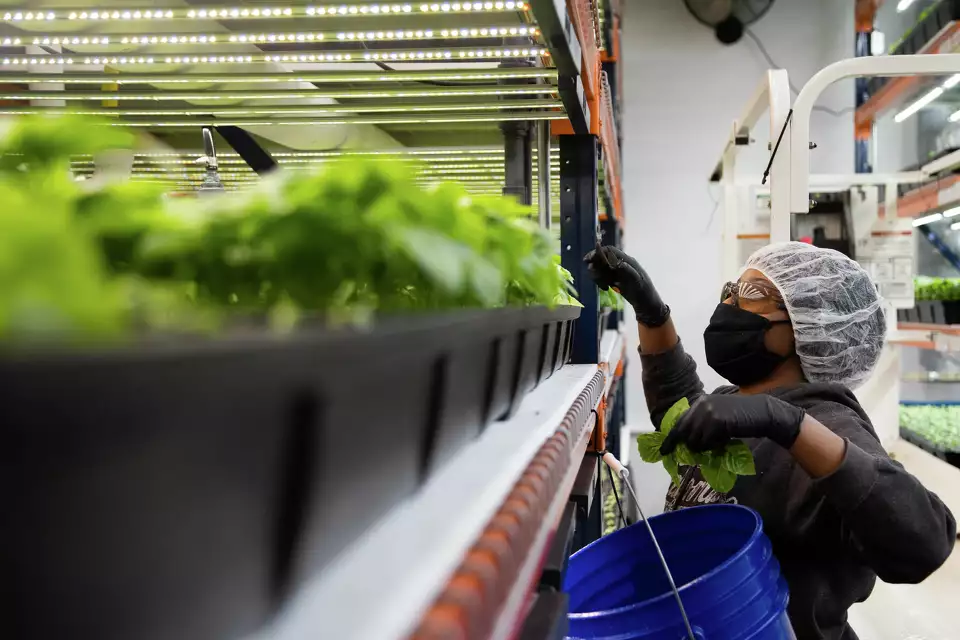Dream Harvest, a prominent player in the vertical farming industry based in Houston, is preparing to sell $8 million in surplus equipment previously allocated for packing and harvesting. This strategic move comes not due to financial instability but as part of a planned divestiture to streamline operations across its facilities.
The auction, taking place online from January 14 to 16 and managed by Silicon Valley Disposition, features high-value assets including an advanced irrigation system worth over $2.1 million, $1.5 million in specialized containers, and $2 million in Fluence LED lighting, alongside a variety of climate and irrigation sensors and other essential farming apparatus.
Zain Shauk, CEO of Dream Harvest, emphasized that this asset sale aims to optimize the company’s inventory, ensuring efficient use across their established growing facilities. Shauk stated, “We are selling some of our unused assets in Houston. We have what we need in our other facilities,” affirming the robustness of the company’s operational strategy. Despite inquiries, Shauk has not disclosed further details about the future operations at their 8416 S Breeze location or any expansions.
Vertical farming, a sustainable agricultural approach, is gaining momentum globally and Texas has become a fertile ground for this innovation. Dream Harvest, established in 2015, has been integral to this movement, providing fresh, locally sourced produce like lettuce, kale, herbs, and baby greens to well-known outlets such as Whole Foods and Sweetgreen. This industry has been bolstered by increasing consumer demand for sustainable and locally sourced food, combined with the need for efficient urban agriculture solutions.
Dream Harvest’s expansion was significantly underpinned by a $50 million investment secured in 2022 from Orion Energy Partners. This funding facilitated the development of a 100,000-square-foot state-of-the-art growing facility and helped double the workforce, reflecting the company’s growth and adaptation to the evolving market needs. Notably, the vertical farming sector in Texas is also seeing growth with companies like Eden Green Technology in Fort Worth, Infarm near Austin, and Kalera in north Houston contributing to the landscape.
Moreover, Eden Grow Systems, a NASA spinoff, recently announced a transformative plan to convert part of Houston’s historic Niels Esperson Building into a vertical farm, showcasing the expanding footprint and acceptance of vertical farming methods within urban environments. The appeal of vertical farming lies in its ability to produce crops in controlled indoor environments, significantly reducing water usage and eliminating the need for pesticides, which proves advantageous in urban settings where space and resources are limited.
As the global demand for sustainable agriculture solutions grows, vertical farming offers a promising path forward. According to research by MarketsandMarkets, the vertical farming market size is projected to grow from $3.1 billion in 2020 to $9.7 billion by 2026, at a compound annual growth rate of 25.2%. This growth is driven by the efficiency of vertical farms, which use less land and water while delivering higher yields than traditional farming methods. Dream Harvest’s strategic divestiture of unused equipment positions them well within this burgeoning industry to capitalize on future opportunities and maintain a focus on core operations that deliver value to both their business and consumers.

